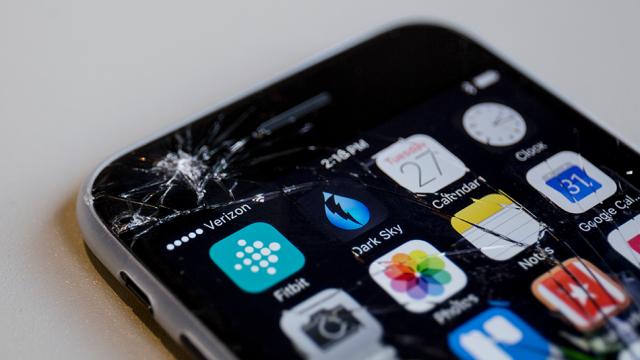In an apparent flip on its position on independent repair operations, Apple this week announced that it will finally provide the parts and tools needed to perform “the most common out-of-warranty iPhone repairs” to independent businesses. But don’t go patting Apple on the back just yet.
As part of a new repair initiative, Apple will begin supplying independent repair outfits with the same OEM tools, diagnostics, parts, guides and training necessary to perform iPhone repairs and that it already provides to its Apple Authorised Service Providers (AASPs), the company announced Thursday. To qualify for the program, those repair businesses will require an Apple-certified technician to carry out the repairs.
Apple specified that the independent repair shops would pay the same price for parts and tools as its AASPs. The program will start in the U.S., though the company said it has plans to expand it to international markets as well.
This sure sounds like good news — and it’s certainly a step in the right direction. But right to repair advocates in the U.S. stopped short of calling the move an all-out victory. Apple is, after all, the same company that for years has lobbied against right to repair efforts in the country.
Editor’s Note: “Right to repair” is a concept for government legislation that allows consumers the right to repair their own devices regardless of manufacturer policy.
While bringing independent repair shops into the fold — provided they fit Apple’s criteria — is great for consumers and businesses, it still fails to put total control in the hands of its customers to opt to fix their own stuff.
Kyle Wiens, editor-in-chief of repair resource iFixit, told Gizmodo by phone that there is “an economic argument around independent technicians, but if you can’t open your own product, you really don’t own it.” But Wiens noted that Apple’s announcement of its independent repair program is also “a little bit of a vindication of the whole point that iFixit exists.”
“We created iFixit to fill in this hole that Apple had where it didn’t have parts and tools and information available, so we had to go and create them,” Wiens said. iFixit has long supplied tools and parts necessary to perform repairs on Apple products, in addition to those for other products by other companies. (For example, Motorola last year partnered with iFixit to offer a first-of-its-kind, do-it-yourself repair kit to its customers.) But now that Apple is offering these parts to independent retailers itself, Wiens says iFixit welcomes the competition.
Gay Gordon-Byrne, executive director of the Repair Association, told Gizmodo by email that while Apple’s announcement came as a surprise, we’ve also known that Apple had the capacity to implement such a program months ago, thanks to internal documents obtained by Motherboard and published in March.
“We’ve been all over Apple about the hypocrisy of refusing to sell authentic batteries and then telling consumers their batteries are unsafe. I think the FTC Nixing the Fix workshop made it clear that refusing to sell parts over design flaws and other safety issues is ridiculous,” Gordon-Byrne said, pointing to a July workshop held by the agency that examined repair restrictions and their effects on consumers and independent repair outlets.
The concept of “safety” has long been an argument Apple used to maintain its monopoly on repairs. And in a statement that nearly mirrored language the company has used to defend its position on independent repairs prior to this week’s reversal, Jeff Williams, Apple’s chief operating officer, said in a statement that “the safest and most reliable repair is one handled by a trained technician using genuine parts that have been properly engineered and rigorously tested.”
But Apple’s really just moved the bar on what it deems to be “safe.” And as Wiens pointed out on Twitter, if the repairs “are secure enough to provide to independent technicians, they should be available to consumers as well!”
There are, of course, caveats to the rollout of this new program. Apple states on its application page, for example, that it “reserves the right to reject any application without comment,” which is kind of a bummer for any business trying to navigate the company’s application process. Additionally, Apple told Gizmodo it will take time to work through applications.
Still, Gay Gordon-Byrne said that the expansion of repairs to include independent businesses “may be helpful to consumers that have been begging Apple to expand their network of authorised providers to more locations.”
